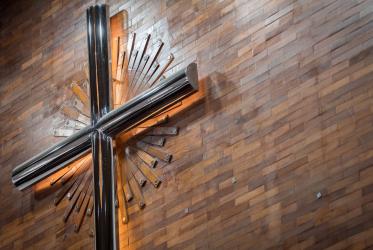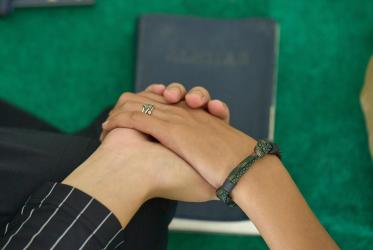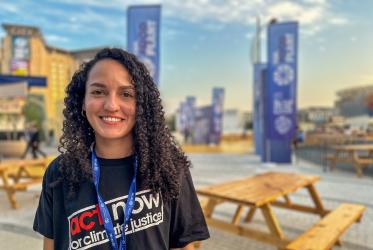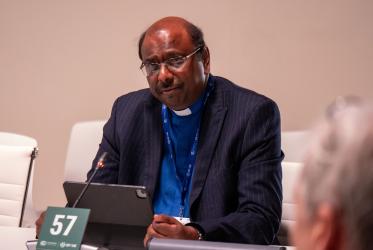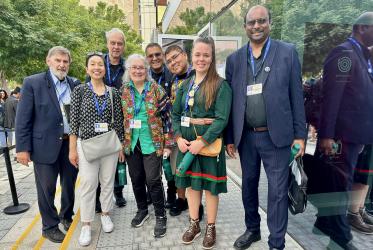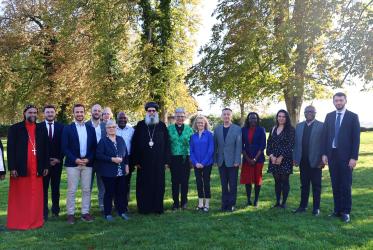Displaying 21 - 40 of 316
Churches in Africa agree on guidelines for disability inclusion
19 December 2023
Ellyanne Chlystun-Githae Wanjiku to COP28: “listen more to children”
13 December 2023
WCC webinar explores decolonizing beauty
11 December 2023
At COP28, WCC general secretary hopes for “less talk and more walk”
01 December 2023
Young Black Europeans: “common witness has an open ear”
30 November 2023
As floods rage in eastern Africa, church acts to save the people
22 November 2023
Thirty days that changed the ecumenical movement
23 October 2023
Recommended Practices to Combat HIV-Related Stigma
A Guidebook for Local Faith Communities
05 October 2023
